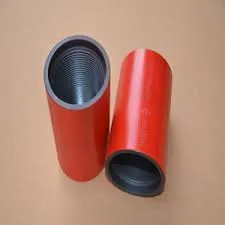- Afrikaans
- Albanian
- Amharic
- Arabic
- Armenian
- Azerbaijani
- Basque
- Belarusian
- Bengali
- Bosnian
- Bulgarian
- Catalan
- Cebuano
- Corsican
- Croatian
- Czech
- Danish
- Dutch
- English
- Esperanto
- Estonian
- Finnish
- French
- Frisian
- Galician
- Georgian
- German
- Greek
- Gujarati
- Haitian Creole
- hausa
- hawaiian
- Hebrew
- Hindi
- Miao
- Hungarian
- Icelandic
- igbo
- Indonesian
- irish
- Italian
- Japanese
- Javanese
- Kannada
- kazakh
- Khmer
- Rwandese
- Korean
- Kurdish
- Kyrgyz
- Lao
- Latin
- Latvian
- Lithuanian
- Luxembourgish
- Macedonian
- Malgashi
- Malay
- Malayalam
- Maltese
- Maori
- Marathi
- Mongolian
- Myanmar
- Nepali
- Norwegian
- Norwegian
- Occitan
- Pashto
- Persian
- Polish
- Portuguese
- Punjabi
- Romanian
- Russian
- Samoan
- Scottish Gaelic
- Serbian
- Sesotho
- Shona
- Sindhi
- Sinhala
- Slovak
- Slovenian
- Somali
- Spanish
- Sundanese
- Swahili
- Swedish
- Tagalog
- Tajik
- Tamil
- Tatar
- Telugu
- Thai
- Turkish
- Turkmen
- Ukrainian
- Urdu
- Uighur
- Uzbek
- Vietnamese
- Welsh
- Bantu
- Yiddish
- Yoruba
- Zulu
pup joint tubing
Understanding Pup Joint Tubing in Oil and Gas Operations
Pup joint tubing is a critical component in the oil and gas industry, specifically within the context of drilling and production operations. These short sections of pipe come in various lengths, typically ranging from 2 to 10 feet, and are used to connect various pieces of equipment in drilling rigs and production systems. The term pup joint refers to a pipe that is shorter than the standard length of tubulars, which typically measure 30 to 40 feet.
Understanding Pup Joint Tubing in Oil and Gas Operations
In many cases, pup joints are essential for both vertical and horizontal drilling applications. When drilling wells, especially in unconventional settings, precise measurements and alignments are necessary to tap into the oil or gas reservoirs effectively. By using pup joints, drilling teams can manipulate the configuration of their assemblies to optimize performance and minimize the risk of equipment failure.
pup joint tubing

Pup joints are also vital during the production phase. They allow for adjustments in the completion strings, accommodating changes in tubing size and enabling connections to downhole tools and safety valves. This flexibility is paramount in ensuring the well operates efficiently over its lifespan, adapting to any shifts in pressure or production requirements.
Furthermore, pup joints are manufactured from high-strength materials, designed to withstand the demanding environments of oil and gas extraction. They are subjected to rigorous testing to ensure they meet stringent industry standards for quality and safety. Operators must also manage factors like corrosion, wear, and environmental stress, as these can significantly affect the performance and longevity of the joints.
In summary, pup joint tubing plays a vital role in the oil and gas sector, providing essential connectivity and flexibility in drilling and production systems. Understanding the functionality and importance of these components empowers operators to enhance their operational efficiency, ultimately leading to more successful extraction processes. As the industry continues to evolve, the use of pup joints will remain fundamental to achieving safe and efficient resource development.
-
Tubing Pup Joints: Essential Components for Oil and Gas OperationsNewsJul.10,2025
-
Pup Joints: Essential Components for Reliable Drilling OperationsNewsJul.10,2025
-
Pipe Couplings: Connecting Your World EfficientlyNewsJul.10,2025
-
Mastering Oilfield Operations with Quality Tubing and CasingNewsJul.10,2025
-
High-Quality Casing Couplings for Every NeedNewsJul.10,2025
-
Boost Your Drilling Efficiency with Premium Crossover Tools & Seating NipplesNewsJul.10,2025







